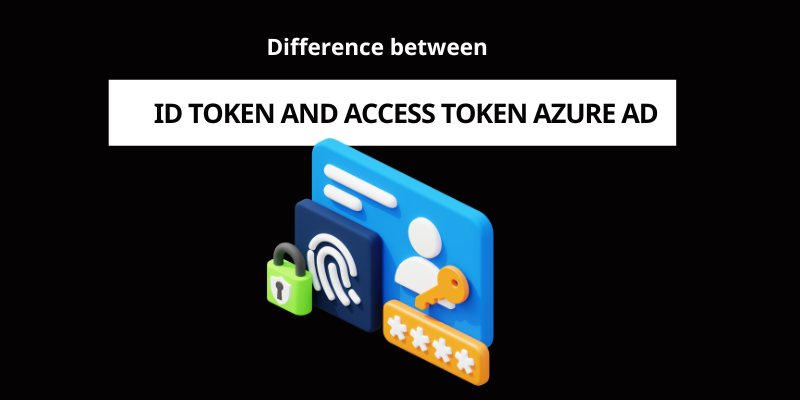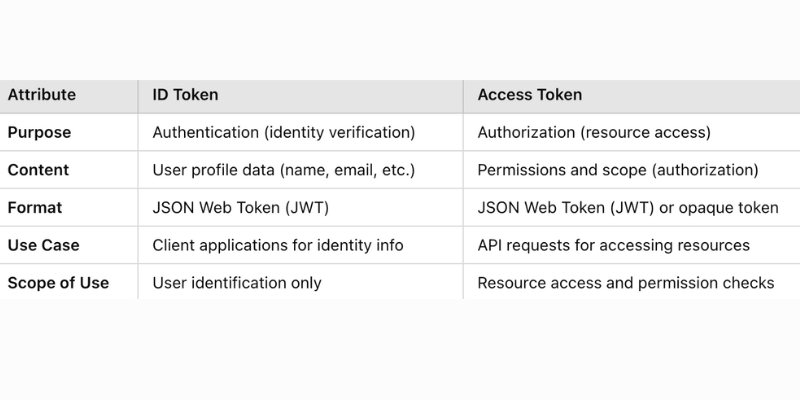When working with Azure Active Directory (Azure AD), understanding the difference between ID token and access token is essential for implementing proper authentication and authorization mechanisms in your application. Although both tokens are issued by Azure AD as part of the OAuth 2.0 and OpenID Connect protocols, they serve different purposes and contain distinct types of information.

What is an ID Token?
An ID token is issued after a successful authentication process and is used to verify the identity of a user. This token contains user profile information such as their name, email, and other claims that identify the user.
- Purpose: The primary purpose of the ID token is to authenticate the user and confirm their identity to the client application.
- Content: The ID token typically includes claims like sub (subject), iss (issuer), aud (audience), exp (expiration time), and name or email.
- Usage: The ID token is primarily used by client applications to establish the identity of the user and display personalized content based on user data.
Key Characteristics of ID Tokens:
- Issued for Authentication: Ensures that the user is who they say they are.
- No Authorization: It is not used to access resources or APIs.
- Format: It is usually in JSON Web Token (JWT) format.
What is an Access Token?
An access token, on the other hand, is used to grant the client application permission to access resources or APIs on behalf of the user. This token does not contain user identity information like the ID token; instead, it contains authorization details.
- Purpose: The primary function of the access token is to authorize access to resources. It defines the scopes or permissions granted to the client application.
- Content: The access token typically includes claims like sub, iss, aud, exp, and scope, which define the permissions the application has to perform certain actions.
- Usage: Access tokens are sent with API requests to the resource server, which validates the token and grants or denies access to the requested resource.
Key Characteristics of Access Tokens:
- Issued for Authorization: Allows access to resources and APIs.
- No Identity Information: Unlike ID tokens, access tokens do not include user profile information.
- Format: Access tokens can be either JWTs or opaque tokens, depending on the authorization server.
Difference Between ID Token and Access Token in Azure AD
To summarize, the difference between ID token and access token in Azure AD lies in their intended purposes and the types of information they carry:


